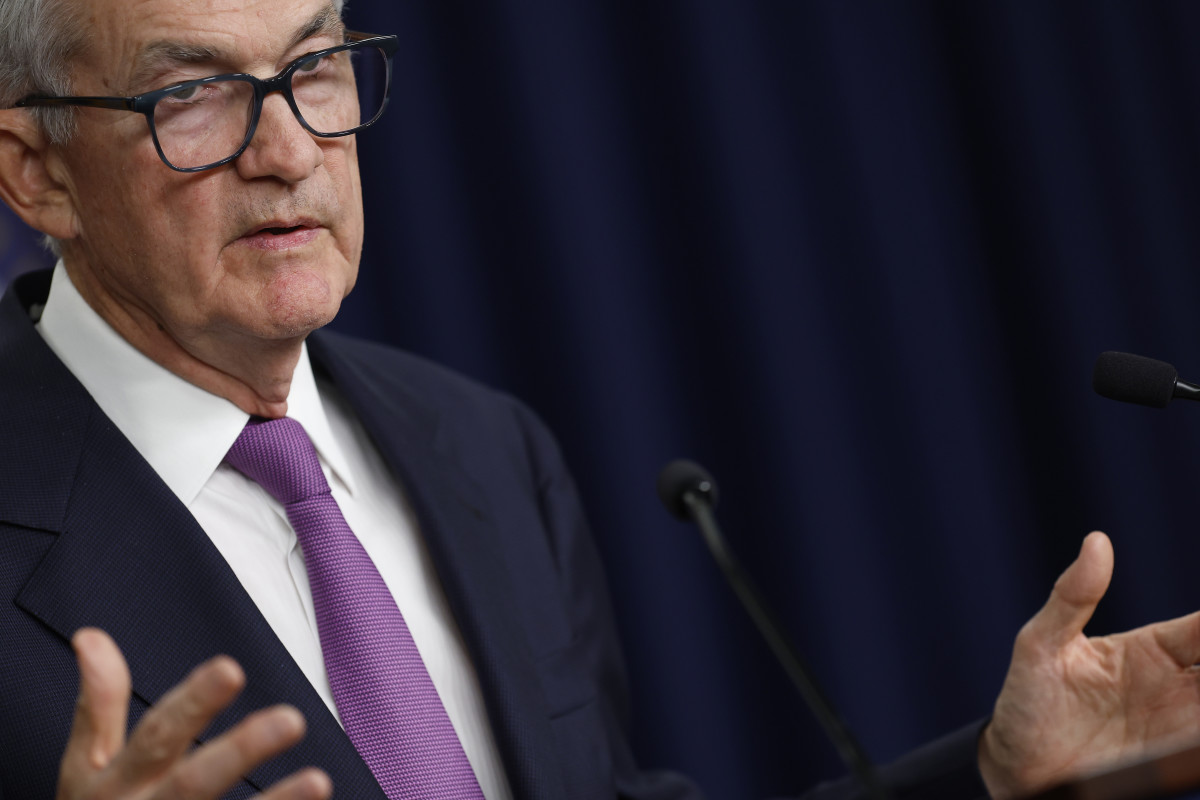
The Federal Reserve looks increasingly likely to orchestrate the one thing most investors, and many central bank officials themselves, were certain it couldn't achieve: taming inflation without tipping the economy into recession.
The engine of any consumer-led economy — and spending accounts for around two-thirds of U.S. growth — is its job market. Consistent and predictable employment, with steady wage gains, powers the kind of consumer spending needed to ensure both broader GDP growth and underlying corporate profits.
The U.S., remarkably, added around 2.7 million jobs to the economy last year, a much better-than-expected tally. The figure came amid not only some of the most aggressive Fed rate hikes in a generation, but also the broad-market consensus that rate increases would lead to a spike in unemployment and a damaging recession.
Friday's December jobs report, in fact, provided a thumbnail sketch of the 2023 labor market. Data showed a better-than-expected addition of 216,000 new hires, most of which came from the private sector, alongside a headline unemployment rate of 3.7%.
Related: Jobs report shows 216,000 new hires, testing bets on spring Fed rate cuts
“The unemployment rate didn’t change much in December, and it marks the 23rd month with unemployment below 4% — something that hasn’t happened since 1969," said Elizabeth Renter, data analyst at NerdWallet.
"Had you told most experts a few years ago that this would be the case simultaneous with 11 Fed rate hikes, they wouldn’t have believed it. Yet, here we are."
Wage gains, while modestly quicker than forecast, are nonetheless trending above the current levels of inflation. And data earlier this week from payroll-processing group ADP suggest that the premium job changers demand has slowed to the lowest levels in three years.
Furthermore, a key component of the ISM's December activity survey, which tracks the broadest measures of economic growth, pegged hiring levels at the lowest in at least two decades.
Yellen sees soft-landing potential
That's not great news, of course, but when set against the stronger December jobs report, ADP's solid private-sector gains and another decline in weekly applications for unemployment benefits, the labor-market picture increasingly resembles that of a carefully slowing economy.
"What we're seeing now I think we can describe as a soft landing, and my hope is that it will continue," Treasury Secretary Janet Yellen told CNN Friday.
“The American people did it,” she added. “The American people go to work everyday, participate in the labor market, form new businesses. But President Biden has tried to create incentives that give Americans the tools they need to help this economy grow.”
Fed Chairman Jerome Powell certainly had a hand in it, as well.
The Atlanta Fed's GDPNow forecasting tool suggests a current-quarter growth rate of 2.5%, while the Bureau of Economic Analysis is likely to report a fourth-quarter pace of around 1.6% when it publishes its first official estimate on Jan. 25.
Both figures, while notably softer than the 4.9% exit rate for the third quarter, are nonetheless levels that suggest we're a long way from near-term recession risks.
Inflation, as well, is trending toward the Fed's sacred 2% target, and headline consumer-price pressure could fall below 3% when the Commerce Department publishes its December inflation estimate next Thursday.
Inflation: Not yet 'Mission Accomplished'
That might change the timing of market forecasts for Fed rate cuts, which most expect to begin in March. But official projections still indicate Powell and his colleagues would be comfortable trimming at least 75 basis points, or 0.75 percentage point, from the current benchmark rate of between 5.25% and 5.5%.
"The Fed cannot say 'mission accomplished' on inflation, as the measure of average hourly earnings shows, and we think they remain cautious on the idea of lowering rates too quickly," said Steve Wyatt, chief investment strategist at BOK Financial. "Yet we can also say economic growth remains positive and a recession is not imminent.”
That view dovetails nicely with Powell's remarks to the media during his regular press briefing in Washington last month.
"There’s little basis for thinking that the economy is in a recession now (but) there’s always a probability that there will be a recession in the next year, and it’s a meaningful probability no matter what the economy is doing," the Fed chief said.
"I have always felt, since the beginning, that there was a possibility that the economy could cool off in a way that enabled inflation to come down without the kind of large job losses that have often been associated with high inflation and tightening cycles," he added.
It's hard to argue, heading into the start of the new year, against the idea that he's likely to be proven correct.
- Get investment guidance from trusted portfolio managers without the management fees. Sign up for Action Alerts PLUS now.







